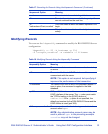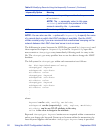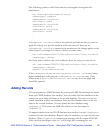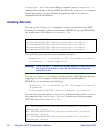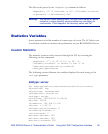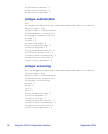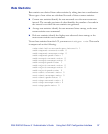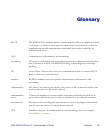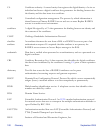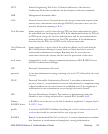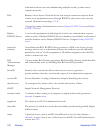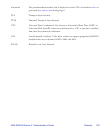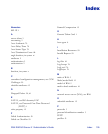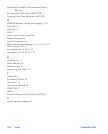102 Glossary September 2005
information about users and administering multiple security systems across
complex networks.
RAS Remote Access Server. Network device that accepts connection requests from
remote users, authenticates users through RADIUS, and routes users onto the
network. Identical in meaning to NAS.
realm A logical grouping of authentication servers (Primary RADIUS Server and Replica
RADIUS Servers).
Replica
RADIUS Server
A server that participates in balancing the load of user authentication requests
within a realm. A Replica RADIUS Server’s database is periodically synchronized
with the database on the Primary RADIUS Server. Compare Primary RADIUS
Server.
return list
attribute
An attribute that RSA RADIUS Server returns to a RAS in an Access-Accept
message when a user is authenticated. Return list attributes provide additional
parameters, such as VLAN assignment or IP address assignment, that the RAS
needs to connect the user.
RSA
Authentication
Manager
A host running RSA Security proprietary RSA SecurID software, which identifies
and authenticates users by validating their RSA SecurID passcodes.
SecurID Security token system that allows remote-access users to generate a
pseudo-random value they can forward as part of an authentication sequence.
session ID Session Identifier. A string of characters uniquely identifying the session.
shared secret An encryption key known only to the sender and receiver of data.
SNMP Simple Network Management Protocol.
software token A software utility running on a computer or digital assistant that generates a
tokencode. Compare token.
supplicant The client in an 802.1X-authenticated network.
time drift The process by which two clocks that are initially synchronized gradually display
different times.
token A physical device, such as an RSA SecurID card or key fob, that displays a
tokencode. A user’s token is one of the factors in the RSA SecurID authentication
system. See PIN.



